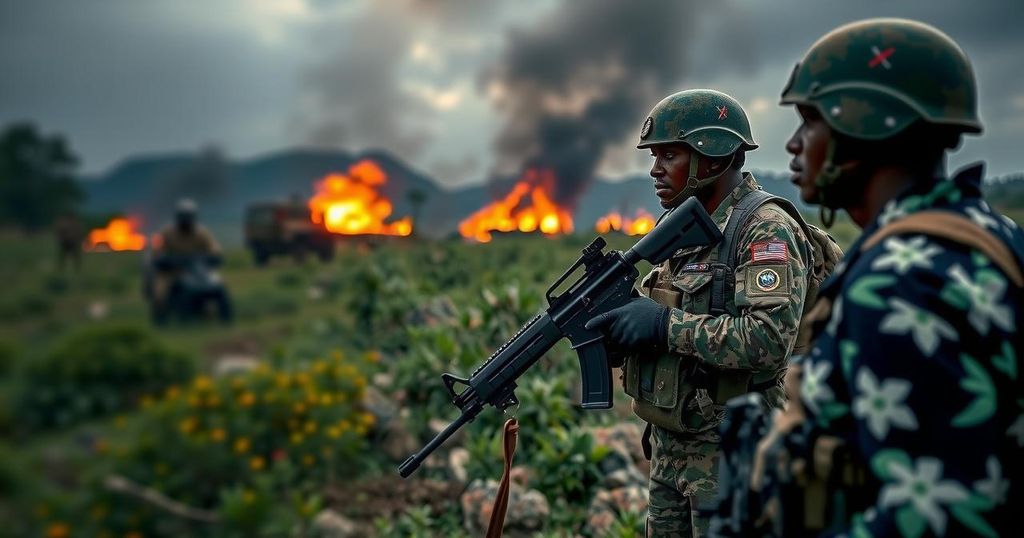Angola has accused the M23 rebels of violating a ceasefire in the DRC, following clashes with Wazalendo militia in Kalembe. The ceasefire, effective since August thanks to Angola’s mediation, appears compromised as local reports confirm that M23 has seized control of the town. Angola condemned this action, calling it a serious threat to peace efforts, while the region remains tumultuous due to its mineral wealth and historical conflicts.
Angola has accused the M23 rebels, associated with Rwanda, of breaching a ceasefire agreement in the eastern Democratic Republic of the Congo (DRC). This ceasefire, established in early August through Angola’s mediation, was intended to halt hostilities between the DRC army and the largely Tutsi M23 militia. However, reports emerged of clashes that erupted on Sunday between M23 forces and the local Wazalendo militia in North Kivu province, which violated the fragile peace. The Angolan government condemned the occupation of the town of Kalembe by M23 as a “flagrant violation” and stated that such actions threaten ongoing efforts to resolve the conflict. Local sources indicated that intense fighting began around 5:00 am and culminated in the M23 taking control of Kalembe later that afternoon. Marcellin Shenkuku, a spokesperson for Wazalendo, claimed that they are currently in control of the town, asserting that no official Congolese forces participated in the conflict. Although clashes between M23 and Kinshasa-affiliated militias are frequent, Angola’s public statement is notably rare. Since its resurgence in late 2021, M23 has captured extensive territories in eastern DRC, leading to the displacement of thousands and significant humanitarian challenges. Kalembe, home to approximately 40,000 residents, is strategically located on essential supply routes to rich mineral deposits, exacerbating the region’s long-standing conflicts and violence.
The conflict involving the M23 rebels in the eastern Democratic Republic of the Congo has deep historical roots, with the group’s origins tracing back to earlier conflicts that recapitalized on ethnic tensions and regional instability. The M23, primarily composed of Tutsi fighters, arose as a response to grievances against the Congolese government, leading them to seize control of various territories. Angola’s involvement as a mediator reflects its broader role in regional diplomacy though maintaining stability in the DRC is increasingly complex due to the multitude of local and international actors involved. The region is particularly rich in valuable minerals such as gold, coltan, and diamonds, making it a focal point for competing rebel factions that have sustained decades of violence and humanitarian crises. The ceasefire mediated by Angola aimed to curtail this cycle, but recent violations highlight the fragility of peace efforts.
In conclusion, Angola’s recent accusations against the M23 rebels for violating a ceasefire agreement underscore the challenges faced in establishing lasting peace in the eastern DRC. The clashes in Kalembe demonstrate the ongoing volatility in the region, exacerbated by external support for the rebels and the presence of multiple local militias. The situation remains dire, with thousands displaced and ongoing battles threatening humanitarian efforts.
Original Source: www.barrons.com







